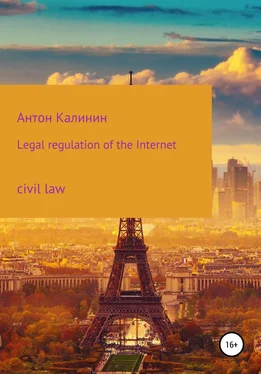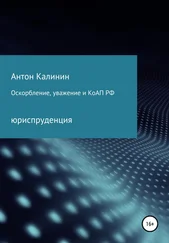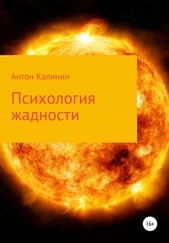Антон Калинин - Legal regulation of the Internet
Здесь есть возможность читать онлайн «Антон Калинин - Legal regulation of the Internet» — ознакомительный отрывок электронной книги совершенно бесплатно, а после прочтения отрывка купить полную версию. В некоторых случаях можно слушать аудио, скачать через торрент в формате fb2 и присутствует краткое содержание. Год выпуска: 2022, Жанр: Юриспруденция, Интернет, на русском языке. Описание произведения, (предисловие) а так же отзывы посетителей доступны на портале библиотеки ЛибКат.
- Название:Legal regulation of the Internet
- Автор:
- Жанр:
- Год:2022
- ISBN:нет данных
- Рейтинг книги:4 / 5. Голосов: 1
-
Избранное:Добавить в избранное
- Отзывы:
-
Ваша оценка:
- 80
- 1
- 2
- 3
- 4
- 5
Legal regulation of the Internet: краткое содержание, описание и аннотация
Предлагаем к чтению аннотацию, описание, краткое содержание или предисловие (зависит от того, что написал сам автор книги «Legal regulation of the Internet»). Если вы не нашли необходимую информацию о книге — напишите в комментариях, мы постараемся отыскать её.
Приветствую дорогой читатель! Представляю вашему вниманию мою книгу "правовое регулирование интернета" на английском. Желаю приятного прочтения.
Legal regulation of the Internet — читать онлайн ознакомительный отрывок
Ниже представлен текст книги, разбитый по страницам. Система сохранения места последней прочитанной страницы, позволяет с удобством читать онлайн бесплатно книгу «Legal regulation of the Internet», без необходимости каждый раз заново искать на чём Вы остановились. Поставьте закладку, и сможете в любой момент перейти на страницу, на которой закончили чтение.
Интервал:
Закладка:
Антон Калинин
Legal regulation of the Internet
I
At the moment, it cannot be said that Internet law in Russia has been widely developed in scientific or practical terms. This is a fairly new, specific area. In scientific terms, based on the traditions of ideas about the system of Russian law and the allocation of branches according to the criterion of "subject-method", it is not necessary to talk about Internet law as an independent branch of Russian law, however. Legal regulation of relations on the Internet is interdisciplinary in nature and requires extensive use of both private law and public law methods and means of legal regulation. Separately, we should focus on the relationship of the concept of “Internet law” with the concept of “information law". The meaning of information cannot be overestimated the phrase: -“Who owns the information, he owns the world”– uttered two hundred years ago, has become winged for a reason. The roots of information law go back to public branches, primarily administrative and criminal law. However, with the development of the subject of legal regulation and the widespread use of private law methods of regulating information, information law has been constantly transformed into a complex branch of law. It should also be noted that a qualitatively new stage in the development of information law as an independent branch of law was the introduction by Order of the Ministry of Education and Science of the Russian Federation of 10.01.2012 No. 5 into the nomenclature of special scientists of a separate specialty 12.00.2013 “Information law” (previously “information law” was part of the specialty 12.00.2014).
The Russian legal doctrine presents various points of view on the subject of information law. The most common position is that the subject of information law includes information legal relations, i.e. public legal relations that develop about information in the information environment and arise during the creation, search, collection, transmission, processing, storage, distribution and consumption of information. In our opinion, such an understanding of the subject of information law is absolutely legitimate and justified. At the same time, there are other opinions on this matter. For example, A. A. Tedeev notes that “the subject of legal regulation of information law should be public relations formed in the process of electronic activities (humanitarian and economic) and carried out in the information environment.” By implying the term "information law", we mean Internet law, while it is unclear what information legal relations outside of electronic activity should be attributed to (for example, issues of confidentiality of information, personal data, etc.). D. A. Lovtsov notes that "historically, there has been a system of the information law branch that currently unites a number of such subsectors, – as the law of information security; – media law, – or the law of mass media; competent law Internet law, or the law of telematics networks regulating certain types of information relations in the infosphere. And being, in turn, a special kind of social relations.”
Of course, the Internet is a software information system, but one should not put an equal sign between public relations related to the organization and functioning of the Internet and information relations that are the subject of information law. Undoubtedly, the relations associated with the creation, receipt, and dissemination of information constitute a fairly large circle of public relations on the Internet, but the latter are not limited to them. In the field of the Internet, technical relations are of great importance, related, for example, to the provision of technical access to the network, website hosting, the use of electronic signatures, technical means and remote access servers (for example, Internet banking, a portal of state and municipal services, a taxpayer's personal account, etc.) In addition, legal regulation of the Internet is often associated with with issues of competition, copyright, international, competent and entrepreneurial, consumer and other branches of law. Therefore, in our opinion, in the theoretical and conceptual theory, it does not seem quite correct to consider Internet law as a sub-branch of information law, since the range of public relations regulated by law on the Internet is wider.
The point of view of I. M. Rassolov, who considers Internet law as an intersectoral institute of law, deserves special attention. In this sense, the author defines Internet law as “objectively isolated within various branches of law (and, above all, information, international, private and public law) a set of interrelated legal norms united by the commonality of regulating relations in the virtual space of the Internet.” He also notes that Internet law, being a complex institution, cannot be entirely part of one or another primary (professional) branch of law, it is included in specific branches only by its part. It is difficult to disagree with the latter. However, the understanding of Internet law as an institution of law (albeit intersectoral), in our opinion, is quite controversial (from the standpoint of the theory of law regarding the understanding of Internet law as a separate group of legal norms regulating initially homogeneous social relations), because the subject of Internet law includes relations that are completely diverse in their legal essence and do not have a sign of qualitative uniformity. Thus, Internet law, of course, is not a branch of law in the classical sense, based on the traditional ideas of domestic legal science about the legal system. At the same time, with a certain degree of conditionality, it would be possible to consider Internet law as a newly emerging and emerging complex branch of law, primarily from the standpoint of the great importance of the subject and sphere of legal regulation of the Internet and the specifics of the social relations emerging in connection with its foundation. Although the Internet plays a huge role in the life of society, it is still essentially a means of telecommunications (technology), and not a socially significant sector of public life or the economy (such as medicine, energy, banking, transport, etc.). It seems unacceptable that the branch of law, albeit complex, to a separate technology (otherwise, according to this logic, it will be possible to talk about “telecommunications law”, “autonomous law”, “the right of wind-electronic generation” as complex branches of law). In addition, it is quite possible that in the near future some other virtual global network alternative to the Internet will appear. Among the characteristic features that distinguish Internet law from other areas of legal science and practice are the following: 1) the cross-border nature of relations on the Internet, as a consequence, a combination of international and national legal regulation; 2) the complex, complex, intersectoral nature of public relations on the Internet, in connection with which both private and public-practicing means and methods of regulation are widely used; 3) the restrictive importance of technical, technological, political, economic aspects, a good understanding of which is required from specialists practicing in the field of Internet law and engaged in research in this area.
In Russia, the importance and significance of Internet law is becoming more and more realized by representatives of the legal community every year. Recently, there have been more and more studies in Russia devoted to the consideration of individual problems related to the functioning of the Internet. For example, much attention is paid to the protection of intellectual property rights on the Internet (including the problems of “piracy”), computer crimes and offenses (most of which are committed using the Internet), issues of legal regulation of electronic communication. The Internet also presents works devoted to the study of the legal concept of the Internet, the legal status of individual subjects of the Internet sphere (registrars, providers, bloggers) and objects of legal regulation.
Читать дальшеИнтервал:
Закладка:
Похожие книги на «Legal regulation of the Internet»
Представляем Вашему вниманию похожие книги на «Legal regulation of the Internet» списком для выбора. Мы отобрали схожую по названию и смыслу литературу в надежде предоставить читателям больше вариантов отыскать новые, интересные, ещё непрочитанные произведения.
Обсуждение, отзывы о книге «Legal regulation of the Internet» и просто собственные мнения читателей. Оставьте ваши комментарии, напишите, что Вы думаете о произведении, его смысле или главных героях. Укажите что конкретно понравилось, а что нет, и почему Вы так считаете.












